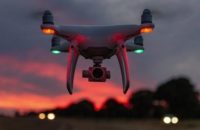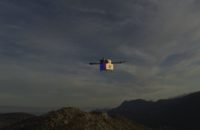
Texas Drone Law: Court Decision Allows Challenge
By DRONELIFE Staff Writer Jim Magill
A recent decision by a federal judge will allow a lawsuit, challenging the constitutionality of Texas drone law, to move forward.
On November 30, US District Judge Robert Pitman handed down an order denying a motion made by attorneys representing the state defendants to dismiss the case. The suit, which was brought by the National Press Photographers Association, the Texas Press Association and a Texas-based photojournalist, claims that Texas drone law restricts journalists’ ability to use photos and videos shot from drones for newsgathering purposes.
The lawsuit names as defendants, Steven McCraw, the director of the Texas Department of Public Safety; Ron Joy, chief of the Texas Highway Patrol; and Wes Mau, the Hays County district attorney.
The suit challenges the surveillance provision of the law, which makes it unlawful to “capture an image of an individual or privately owned real property in [Texas] with the intent to conduct surveillance.” The plaintiffs argue that the law is unconstitutionally vague, in that it doesn’t define what constitutes “surveillance.”
In addition, the plaintiffs allege that the surveillance provision improperly discriminates on a content basis against UAV-produced photos and videos created as part of a newsgathering process, while allowing other groups, including students, engineers and insurance company employees to capture and use the same images for their own purposes.
The plaintiffs also challenged the “No Fly” provisions of the statute, which prohibits drone operations over correctional or detention facilities as well as critical infrastructure facilities, such as oil and gas pipelines, water treatment facilities and chemical plants. As in its pleadings against the surveillance provisions, the suit claims the restrictions are overbroad, in that they contain exemptions allowing drones to be used for commercial purposes, but not newsgathering purposes.
In addition, the suit argues that the “No Fly” provisions violate the doctrine of federal pre-emption of state law, because the Federal Aviation Administration has the exclusive right to regulate all air traffic.





No comments:
Post a Comment